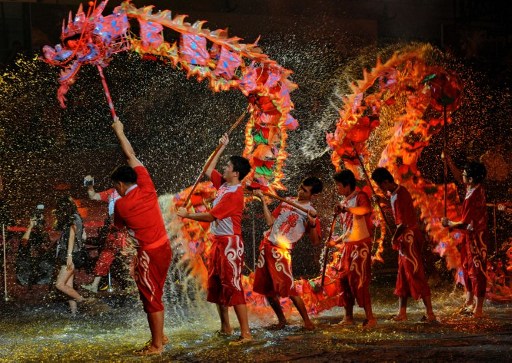SUMMARY
This is AI generated summarization, which may have errors. For context, always refer to the full article.

MANILA, Philippines – When Malacañang released the dates declared as holidays for 2013, one might wonder: why is Chinese New Year not included in the list?
There’s actually no need to declare it a holiday, according to Deputy presidential spokesperson Abigail Valte.
“We’ve consulted [groups about] this, and we found out that the Chinese New Year in 2013 will fall on a Sunday,” she said in a radio interview on Sunday, September 2.
Chinese New Year will fall on February 10, 2013.
For 2012, the Chinese New Year fell on a Monday, January 23. Malacañang declared it a holiday.
Holiday economics
Among the 17 holidays and non-working special holidays for 2013 that Malacañang announced on September 1 are Christmas, which Filipino Christians celebrate, as well as January 1, New Year’s Day.
Both fall on a Tuesday.
The Philippine government encourages citizens to travel to local destinations, while retail and recreation industries encourage consumers to spend, during extended weekends.
Holiday economics is supposed to help spur growth through domestic tourism and to boost the service sector.
Saturday holiday
Valte also explained that they have to declare as holiday some dates that fall on Saturday in 2013.
This includes Bonifacio Day on November 30, which will fall on a Saturday.
“There are some establishments and industries that implement a 6-day work week. So we have to declare holidays on Saturdays for them,” Valte said. – Rappler.com
Add a comment
How does this make you feel?
There are no comments yet. Add your comment to start the conversation.